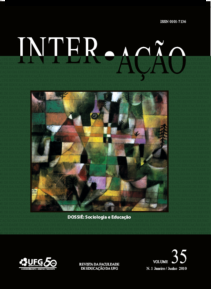THE CULTURAL INDUSTRY, COMPUTER AND TELEVISION : CONSEQUENCES FOR HUMAN AWARENESS AND BEHAVIOR IN CONTEMPORARY SOCIETY
DOI:
https://doi.org/10.5216/ia.v35i1.13138Keywords:
indústria cultural, Tecnologia, Comportamento humanoAbstract
This article is divided in three. In the first part, broader aspects of the relation between the cultural industry are discussed as well as certain implications for human awareness and behavior. In the second part, one of the main technologies is dealt with, that which is being used with each passing day by a greater number of people – the computer. The last part discusses the ideological dimensions of television and the false awareness which results from the illusions it inculcates. The implications of these technologies for the changes in the thinking and behavior of the present generation will be analyzed. The analyses will be principally based on those of Max Horkheimer and Theodor W. Adorno on the cultural industry and television and also those of Denis de Rougemont on the advantages being heralded by the new technologies.Downloads
Downloads
Published
How to Cite
Issue
Section
License
Inter-Ação uses the Creative Commons Attribution 4.0 License for Open Access Journals (Open Archives Initiative - OAI) as the basis for the transfer of rights. Open access means making documents available on the Internet free of charge, so that users can read, download, copy, distribute, print, search, or link to the full text of documents, process them for indexing, use them as input data for software programs, or use them for any other lawful purpose, without financial, legal, or technical barriers.
Authors publishing in this journal agree to the following conditions:
1) Authors retain copyright and grant the journal the right of first publication, with the work simultaneously licensed under the Creative Commons Attribution License, which permits redistribution of the work with attribution and first publication in this journal.
2) Authors are permitted to enter into additional, separate agreements for non-exclusive distribution of the version of the work published in this journal (e.g., for publication in an institutional repository or as a book chapter), with attribution and first publication in this journal.
3) Authors are permitted and encouraged to publish and distribute their work online (e.g. in institutional repositories or on their home page) at any time before or during the editorial process, as this may generate productive changes as well as increase the impact and citation of the published work.















